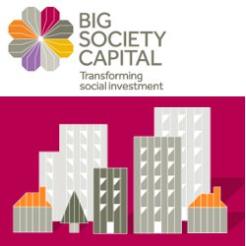The government must change social investment tax relief rules to allow investment through funds, and to permit up to £5m of annual investment per organisation, Big Society Capital has said.
The comments come in a response to a Treasury consultation on changes to SITR, submitted last week.
BSC, the £600m social wholesaler charged with growing the social investment market, submitted the response together with the British Private Equity and Venture Capital Association, the body which represents the type of wealthy investor the tax relief is designed to encourage.
Other sector bodies including NCVO and the Charity Finance Group also backed the £5m a year limit in their responses to the consultation.
SITR allows an investor to claim a tax relief of up to 30 per cent of the investment against their income tax bill if they make a qualifying investment in a charity, community benefit society, community interest company or social impact bond.
However, at the moment the maximum amount of investment allowed under SITR is set at around £280,000 every three years. This is based on the de minimis amounts permitted under EU state aid rule.
The Treasury is considering applying to the EU for a larger limit, and has asked what this should be set at. Sector bodies have called for the limit to be set at £5m a year because this is consistent with the Enterprise Investment Scheme and Venture Capital Trusts, which allow investors to put money into share capital in small start-up companies. SITR is modelled on these reliefs.
However, the BSC consultation response said it was equally important to allow investment through funds, rather than directly into organisations.
“Most social investment is done through funds,” said Simon Rowell, strategy and market development director at BSC. “Investors will also be much more comfortable putting money into funds because their investments will be more diversified.
“We think it’s very important for the success of SITR that a fund structure is allowed to be used.”
He said that the existing fund mechanism for investing in for-profit ventures – the Venture Capital Trust scheme – had shown itself to work well, and should be adapted for social investment.
“VCTs can be used by a wider range of investors,” he said. “They have a lower threshold for minimum investment.”









